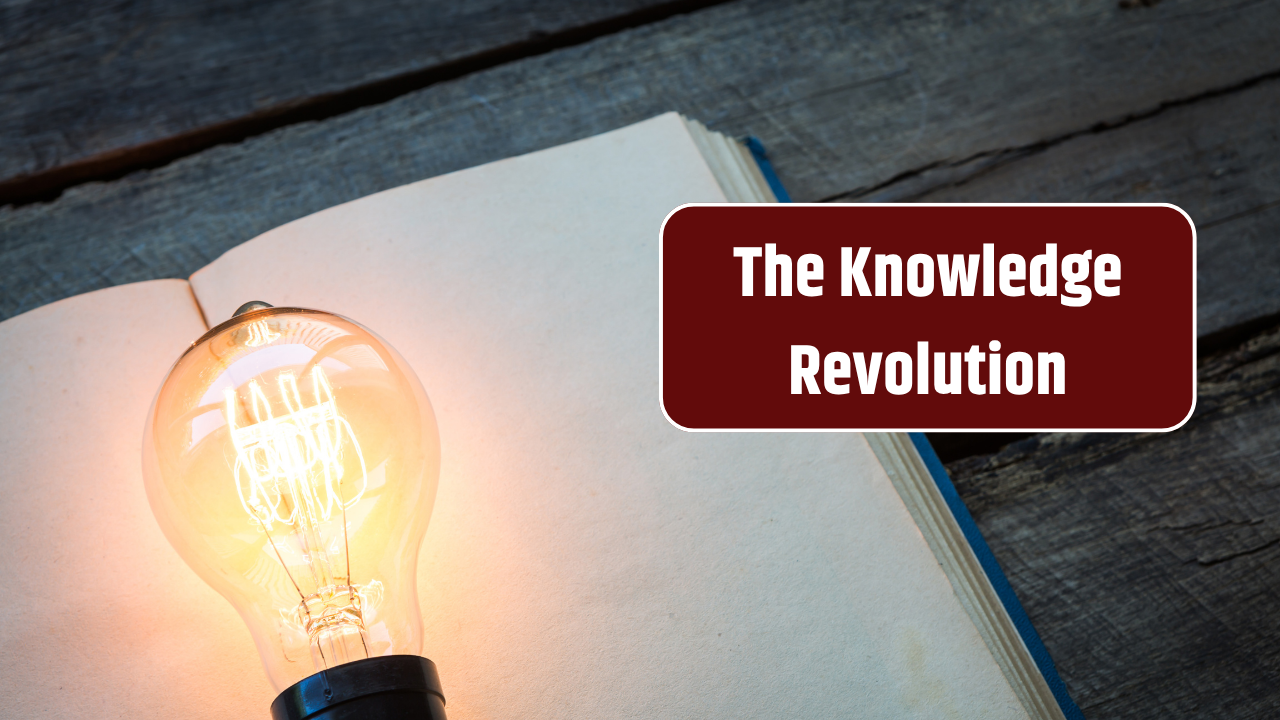The world is currently undergoing what many call a Knowledge Revolution — a sweeping transformation driven by the exponential growth of information, technology, and research. Unlike previous industrial or digital revolutions that focused on machinery and computation, this new era is defined by the creation, sharing, and democratization of knowledge. It is reshaping economies, education, healthcare, and governance, and it’s enabling a more informed and inclusive global society.
The Power of Knowledge in the 21st Century
Knowledge has always been humanity’s greatest resource, but today, its accessibility has reached unprecedented levels. The rise of the internet, open-access journals, and global research collaborations have turned knowledge into a universal currency. From online learning platforms to citizen science projects, information is no longer confined to universities or elite institutions — it is available to anyone with an internet connection. This accessibility empowers individuals to educate themselves, pursue innovation, and participate in solving complex global issues such as climate change, inequality, and public health crises.
Innovation as the Engine of Progress
Innovation lies at the heart of the Knowledge Revolution. Breakthroughs in artificial intelligence, biotechnology, and renewable energy are not just advancing industries — they are redefining human potential. AI algorithms can now analyze massive datasets to uncover patterns that once took scientists years to find. Medical researchers use machine learning to accelerate drug discovery and predict disease outbreaks, while engineers develop sustainable materials and smart infrastructure to combat environmental degradation.
These innovations are driven by a collaborative mindset. Open-source platforms allow researchers and developers to share their work freely, accelerating progress across disciplines. The combination of innovation and open access ensures that ideas can be tested, refined, and applied globally — benefiting not just the privileged few, but entire communities.
Research as a Catalyst for Inclusion
Research has traditionally been seen as an elite endeavor, but the Knowledge Revolution is changing that. Initiatives that promote inclusivity in research — from funding programs for underrepresented scientists to global partnerships between developed and developing nations — are ensuring that diverse perspectives shape the future of discovery.
For example, community-based research models allow local populations to co-create knowledge that directly addresses their unique challenges, from agricultural sustainability to water management. These approaches empower communities while ensuring that research outcomes are practical, culturally relevant, and equitable.
Furthermore, digital tools are enabling more inclusive participation. Cloud-based data platforms, virtual conferences, and multilingual resources are breaking down linguistic and geographical barriers, allowing researchers from across the globe to collaborate in real time. The democratization of research not only advances science but also strengthens global solidarity and understanding.
The Role of Education and Lifelong Learning
Education is the foundation of the Knowledge Revolution. Modern education systems are shifting from rote memorization to critical thinking, creativity, and digital literacy. Online courses, interactive simulations, and adaptive learning technologies are making education more accessible and personalized.
Lifelong learning has also become essential. As technology evolves rapidly, individuals must continually update their skills to remain relevant in the workforce. Platforms like Coursera, Khan Academy, and edX have transformed how people learn, offering courses on everything from coding to philosophy — often for free or at minimal cost.
This commitment to continuous learning ensures that knowledge does not stagnate but evolves alongside human progress. It also promotes inclusion, as people from diverse backgrounds gain the opportunity to contribute meaningfully to global innovation.
Building a More Informed and Inclusive Future
The Knowledge Revolution is not just about producing more information — it is about using that information responsibly to build a fairer, more sustainable world. Governments, organizations, and individuals all play a role in this transformation. Policies that promote open science, digital equity, and ethical AI are critical to ensuring that knowledge remains a force for good rather than a tool of division.
Ultimately, the Knowledge Revolution represents a collective awakening — a recognition that when knowledge is shared and accessible, everyone benefits. By harnessing the power of innovation and research, humanity can bridge divides, solve pressing challenges, and create a future where information is not a privilege but a universal right.
What is the Knowledge Revolution?
The Knowledge Revolution refers to the current era of rapid advancement in knowledge creation, sharing, and application, driven by innovation, technology, and global collaboration
How does innovation contribute to the Knowledge Revolution?
Innovation accelerates research, creates new tools for learning and discovery, and allows for the practical application of knowledge to solve real-world problems.
Why is inclusivity important in research and knowledge sharing?
Inclusivity ensures that diverse perspectives contribute to discovery, leading to more equitable, culturally sensitive, and globally relevant outcomes
How is education changing in the Knowledge Revolution?
Education is becoming more accessible, interactive, and personalized through digital tools and online learning, encouraging lifelong learning for all.
What are the main goals of the Knowledge Revolution?
Its main goals are to democratize information, promote global collaboration, and ensure that innovation benefits everyone, not just a select few.










